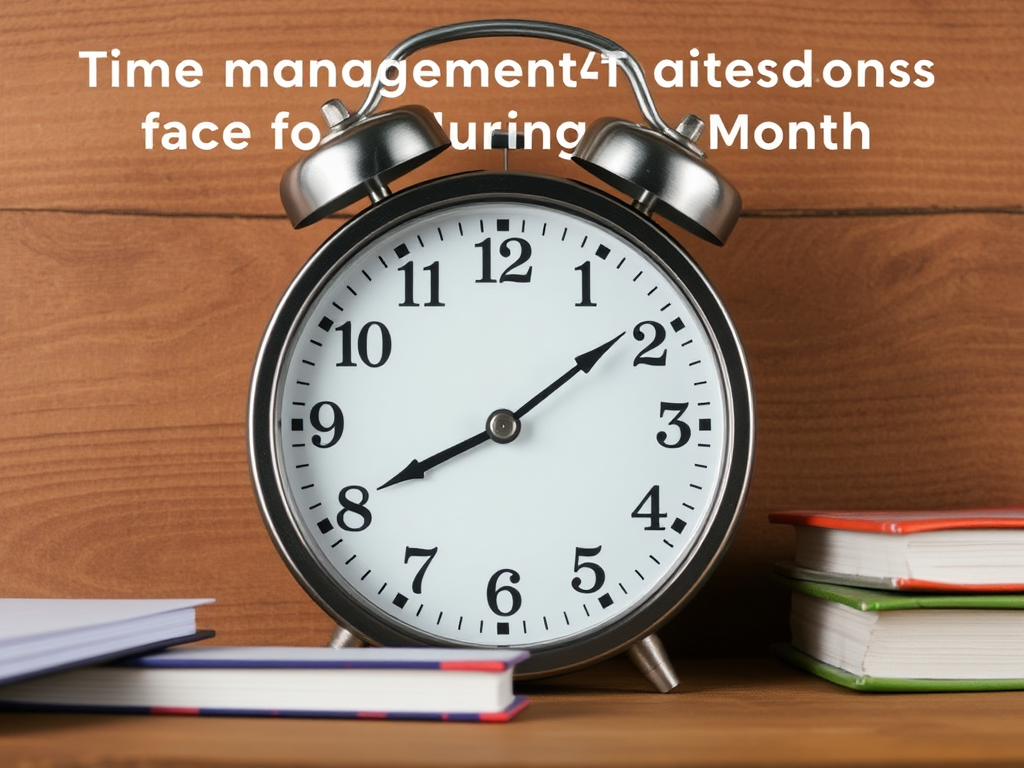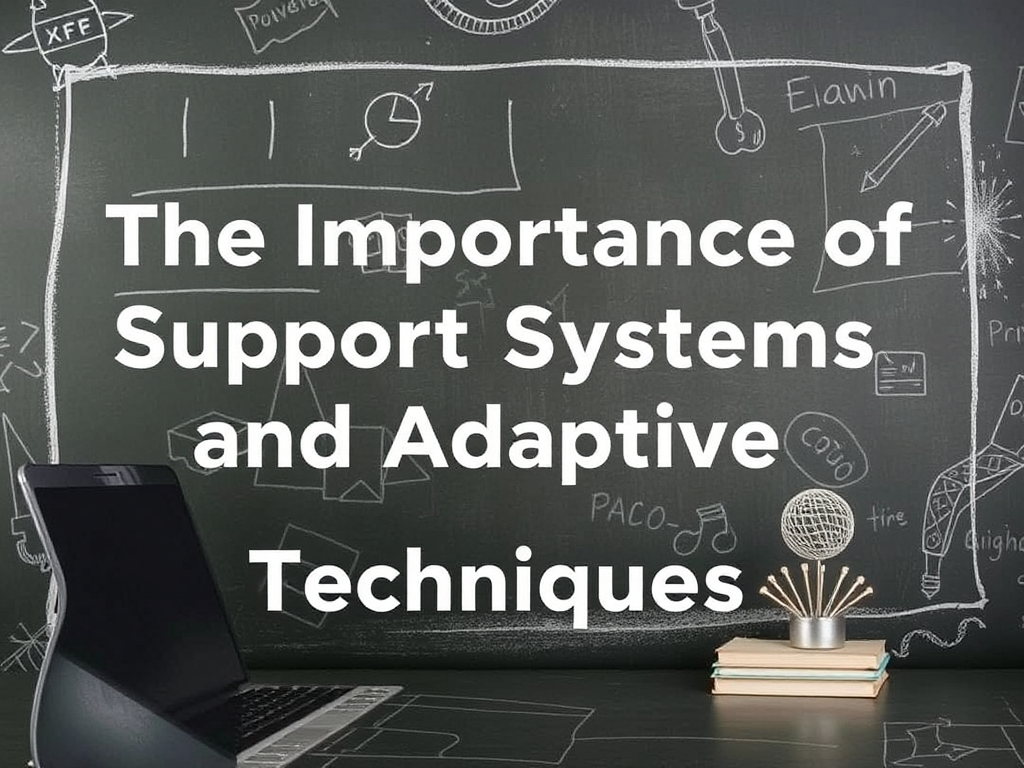During exam month, students encounter significant hurdles focusing on managing their time well. Common issues like procrastination, digital distractions, and overcommitment to extracurricular activities challenge their time management skills. Embracing effective strategies such as setting up study schedules and reducing mobile phone usage is key to boosting academic performance and easing stress.
Key Takeaways:
- Procrastination and digital distractions tend to disrupt students’ exam preparation.
- Good time management is crucial, with early assignment submissions often leading to higher grades.
- Digital tools like Google Calendar and techniques like time-blocking help students organize study sessions more efficiently.
- Techniques such as the Pomodoro Technique and the Eisenhower Matrix support focus and task prioritization.
- Setting up dedicated study spaces and using apps that combat distractions enhance productivity and lessen procrastination.
Time Management Challenges Students Face During Exam Month
Students often struggle with procrastination, distractions from technology, and overcommitment to extracurriculars during exam month. Procrastination affects an overwhelming 95% of students, while 53% experience severe consequences (source needed). Many students spend less than an hour a day on coursework, which hampers their exam preparation.
Distractions from technology, like social media and streaming services, further eat into precious study time. Overcommitment to extracurricular activities also leaves little room for focused academic work. These issues increase stress levels and negatively affect academic outcomes. Prioritizing tasks and setting clear goals can help mitigate these challenges.

Impact on Academic Success: Why Effective Time Management Matters
Effective time management can greatly boost academic performance. A significant number of students who submit their work early see tangible benefits. According to a study, 76% of these early submitters achieve higher grades. The connection here is clear—when you plan and allocate your time wisely, you pave the way for superior performance.
Many students recognize the potential of improving their time management. In fact, 87% of them believe that honing this skill could significantly enhance their academic results. This belief isn’t without basis. With enhanced time management, students can dedicate more focused hours to their studies, leading to meaningful engagement with the material.
One crucial aspect of this strategy involves reducing mobile phone dependence. The less time spent on phones, the more time students can devote to studying. This shift towards self-control contributes to a more engaged learning process. Emphasizing these practices can lead to notable improvements:
- Submit assignments ahead of deadlines.
- Set specific study hours, free from distractions.
- Use apps sparingly and strategically for studying, not as distractions.
These strategies aren’t just about juggling tasks. They’re about setting priorities and maintaining a disciplined approach to academic life. By controlling the urge to constantly check phones and instead dedicating time to study, students can foster a more productive and successful academic journey.

Crafting a Strategic Study Schedule: Tools and Techniques
Creating a structured study schedule ensures efficiency and consistency, particularly during exams. Digital calendars serve as a backbone for this process. They simplify scheduling by integrating syllabi and deadlines, allowing for a unified view of tasks. Tools like Google Calendar or Microsoft Outlook are great for setting reminders and allocating your study blocks effectively.
Time-blocking is another potent method. Designate specific chunks of time each day for different subjects or tasks. It’s a straightforward way to minimize distractions and maintain focus. Statistically speaking, just 50% of students utilize a single system for managing their schoolwork, often leading to missed deadlines (study from Study Schedule UAE).
To avoid falling into this trap, align your calendar with course timelines and crucial exam dates. This strategy enhances your planning and helps manage study fatigue, leading to better outcomes.

Top Time Management Strategies to Implement
Integrate effective techniques to enhance your exam preparation. The Pomodoro Technique is widely popular, with 60% finding it beneficial. Work for 25 minutes, then take a five-minute break. This strategy helps students maintain focus without succumbing to interruptions. Limit multitasking during these intervals to maximize your productivity and retention.
The Eisenhower Matrix is another method that helps prioritize tasks. It aids 50% of users in feeling in control of their daily loads. Divide your tasks based on urgency and importance, ensuring you address critical items first. Use these strategies to better manage your study time, reducing stress and improving outcomes.

Overcoming Procrastination and Reducing Digital Distractions
Tackling procrastination demands bolstering self-control, especially with relentless digital distractions. Keeping my mobile phone use in check during study periods makes a substantial difference. I recommend setting strict time limits for screen use. By doing so, you can significantly cut down on potential distractions. Additionally, using the phone in another room helps maintain focus.
Several apps and browser extensions exist to combat digital disturbances effectively. Tools like Forest and Focus@Will encourage sustained concentration by timing study sessions and rewarding you for sticking to them. Browser extensions such as StayFocusd or Cold Turkey lock you out of distracting websites, ensuring your online time is focused on academics. Introducing practical tools is one way to engage with better study habits.
For those needing help enhancing self-discipline during study, consider the following steps:
- Use apps designed for focus enhancement and accountability.
- Implement clear, timed study sessions with breaks.
- Prioritize tasks by importance to avoid last-minute pressure.
- Set up designated study zones away from potential interruptions.
Adopting these strategies encourages a balanced digital and study life. It limits procrastination’s harmful effects and makes exam months more manageable.

The Importance of Support Systems and Adaptive Techniques
I’ve seen how vital social support and study groups can be for students, with 33% reaping the rewards of these interactions. Forming or joining these groups can enhance understanding and provide motivation. Alongside social support, staying flexible is key. Adjusting study plans when necessary prevents burnout and keeps stress at bay. Implement regular self-assessments to fine-tune your approach and hone resilience. This not only helps in adapting your strategies effectively but also in optimizing your study time.

Sources:
TechJury – “Time Management Statistics”
PubMed – (Article ID: 40176191)
Lifehack Method – “Time Management Statistics”
Prosperity for America – “Time Management Statistics”
Inside Higher Ed – “Survey: Students Want Help With Time Management”
College Ave – “Effective Time Management for Students”
Institute of Education Sciences – “Updating School-Based Measurement of Organization, Time Management, and Planning Skills for Modern Secondary”
University of Maryland Global Campus – “Time Management for Today’s Busy Adults”
